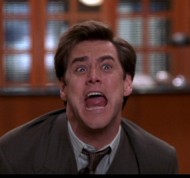Marquette University Law School and World War II
 As I have described elsewhere on this blog, Marquette Law School Dean Francis X. Swietlik played a prominent role in public affairs during the Second World War, primarily because of his leadership role in the American Polish Community. As the leader of the “Chicago Poles,” as Midwesterners of Polish descent were known, Swietlik advised President Franklin Roosevelt on Polish issues and was a national spokesman for the cause of his ancestral country — Swietlik had been born in Milwaukee in 1899 — which had been dismembered in 1939 by Nazi Germany and the Soviet Union.
As I have described elsewhere on this blog, Marquette Law School Dean Francis X. Swietlik played a prominent role in public affairs during the Second World War, primarily because of his leadership role in the American Polish Community. As the leader of the “Chicago Poles,” as Midwesterners of Polish descent were known, Swietlik advised President Franklin Roosevelt on Polish issues and was a national spokesman for the cause of his ancestral country — Swietlik had been born in Milwaukee in 1899 — which had been dismembered in 1939 by Nazi Germany and the Soviet Union.
However, the war was hardly kind to the law school, as its enrollment quickly shriveled as potential law students found themselves in military uniforms.
During the 1940-41 academic year, the law school appeared to be prospering with an enrollment of 225 students, all but eight of whom were males. (One of the male students was Emeritus Professor James Ghiardi, who was then a second year law student.)
Although United States involvement in the War would not come until the Japanese attack on Pearl Harbor in December of 1941, the institution of the military draft and the darkening clouds on the horizon led to a decline in students in the fall of 1941, as the total enrollment dropped to 187 students. Female enrollment dropped from eight to six.
When the United States declared war that December, the law school greatly accelerated its academic calendar, which originally extended into June, so that as many of the current third-year students as possible could finish law school before being inducted into the military. Professor Ghiardi graduated just days before entering military service.
By the beginning of the 1942-43 academic year, the number of the students at the law school had dropped by more than 50% to just 85 students, and to just 77 male students. The situation got even worse after that, as enrollments for 1943-1944 and 1944-45 were only 44 and 42 students respectively.
To deal with the dramatically smaller classes, the law school cut the size of its faculty and moved to a three-semester-a-year format that allowed students to complete the law school course in just twenty-four months. Many of those who did enroll at the law school during the War were ineligible for military service. For example, James D’Amato of Waukesha at 5’1” was too short for military service, while his classmate Clifford Thompson, who was reportedly over 8 feet tall, was both too tall and too old to be drafted. Thompson, who had a successful career in Hollywood as an actor and as a performer with a number of circuses prior to law school, achieved the distinction of being the tallest lawyer in American history after his admission to the Wisconsin bar in 1944. For more on Thompson’s remarkable career, see my earlier post.
One might have thought that the onset of the war would have led to an increase in the number of female law students, but that did not happen at Marquette, as female enrollment amounted to only 5 students in 1943-44 and only 6 in 1944-45.
Moreover, the end of the war did not result in an immediate influx of new students into Marquette and other law schools. World War II did not officially end until the Japanese formally surrendered on September 2, 1945, and the logistics of demobilization made it impossible for many soldiers who wanted to pick up their lives by going to law school to enroll in time for the fall 1945 semester.
In 1945-46, enrollment at the Marquette law school did increase, but not as dramatically as one might have thought. The number of students climbed from 42 to 93 (including 11 women) but the deluge was yet to come.
The following year, 1946-1947, saw the floodgates open as 332 students, including 8 women, enrolled in the law school, which set a new all-time record for the institution.
To facilitate the movement of these former G.I.’s into the legal profession as quickly as possible, the law school preserved the three-semester format, and allowed students to enter the law school at any one of the three semesters, as students had been allowed to do during the war. It would not be until 1950 that the law school would return to the more traditional two-semester, three-year format.
A follow-up post will deal with the demolition and reconstruction of the law school faculty during the World War II era.

 The consensus among film critics seems to be that the “law movie” does not constitute a shaped genre comparable to the thriller or the romantic comedy. However, we can still speak more generally of movies in which a lawyer is a major character, a courtroom proceeding occurs, and the law itself has some role in the plot. Which are the most popular law-related movies of this sort in the history of the American cinema?
The consensus among film critics seems to be that the “law movie” does not constitute a shaped genre comparable to the thriller or the romantic comedy. However, we can still speak more generally of movies in which a lawyer is a major character, a courtroom proceeding occurs, and the law itself has some role in the plot. Which are the most popular law-related movies of this sort in the history of the American cinema?